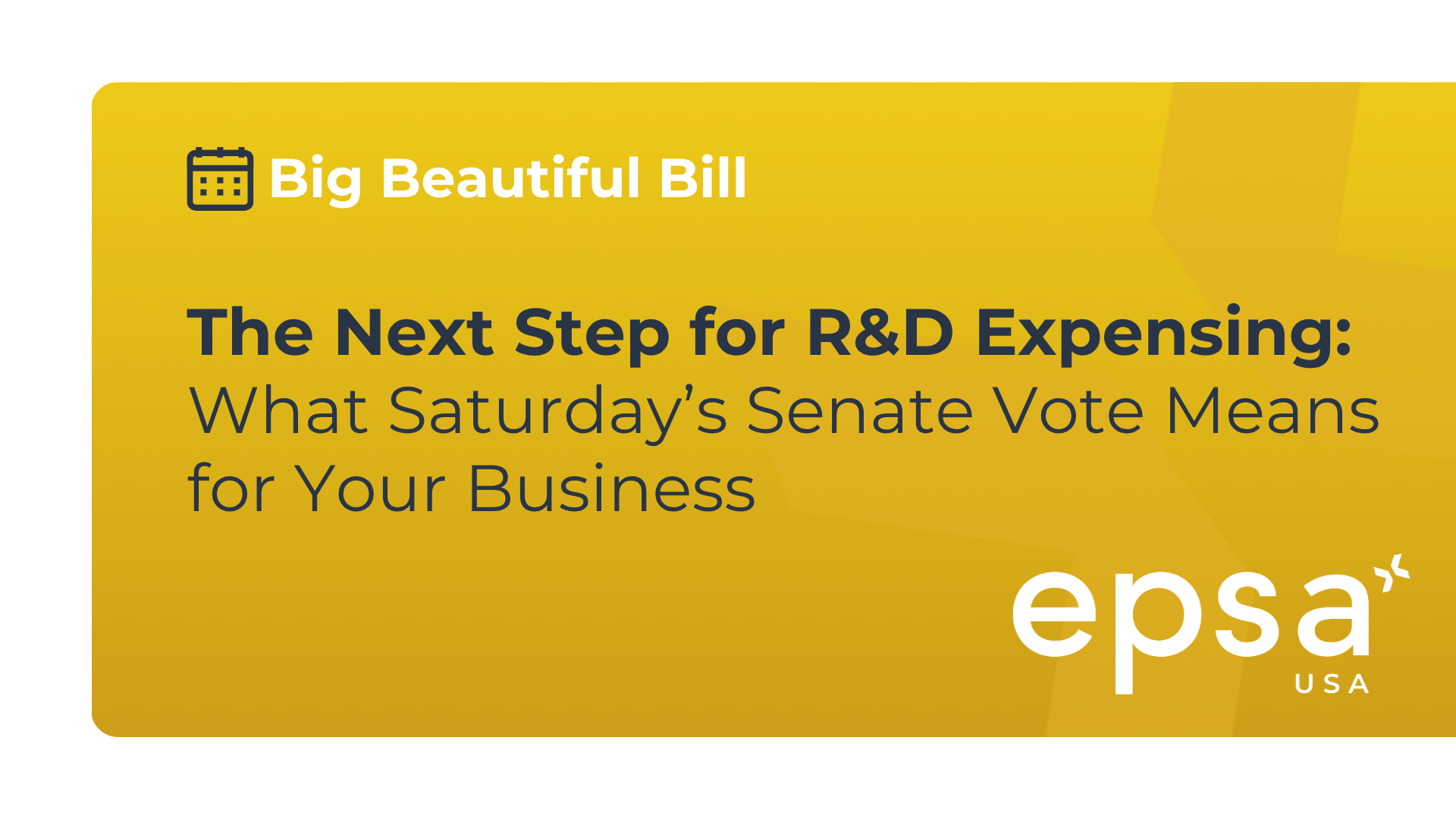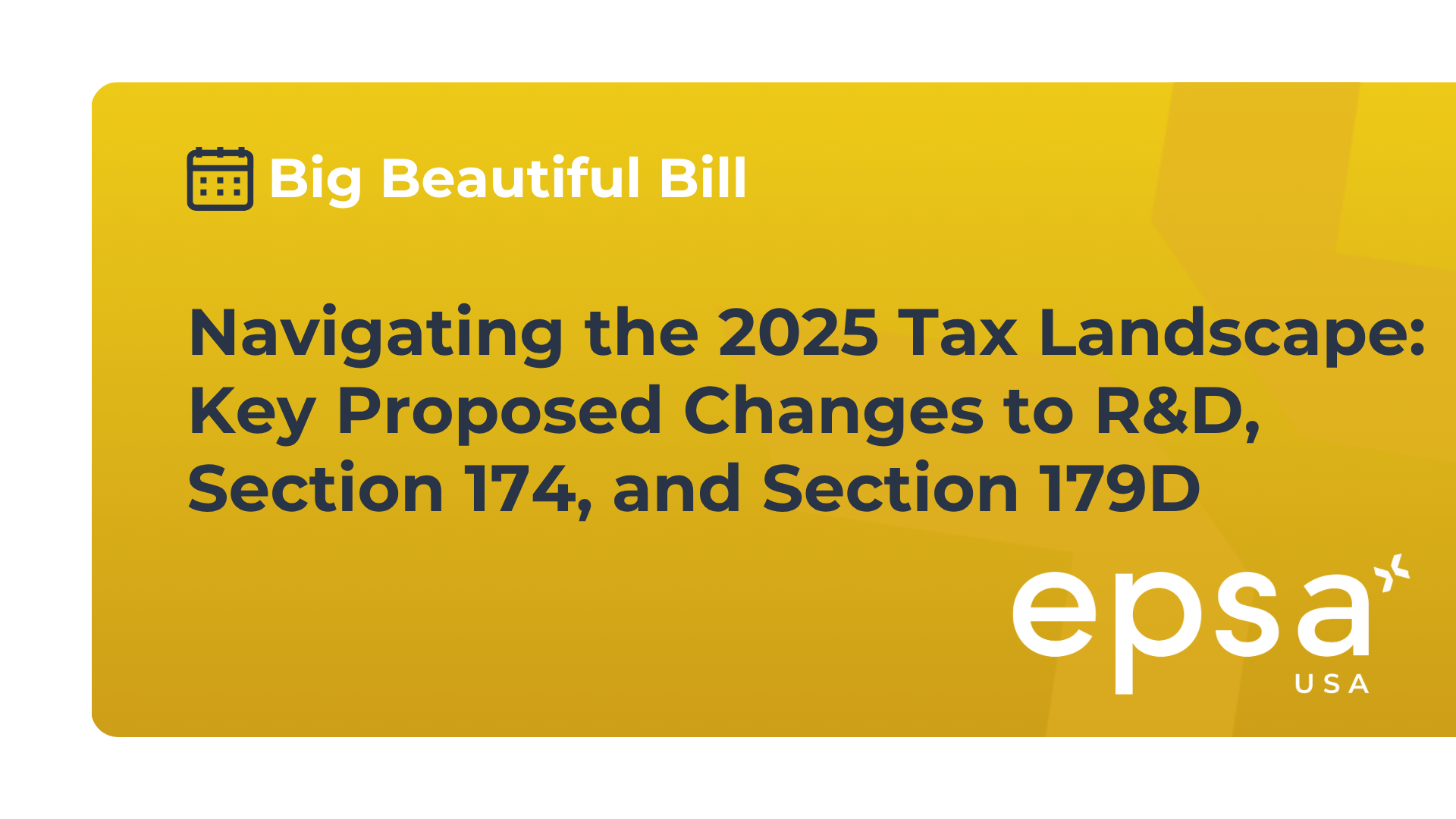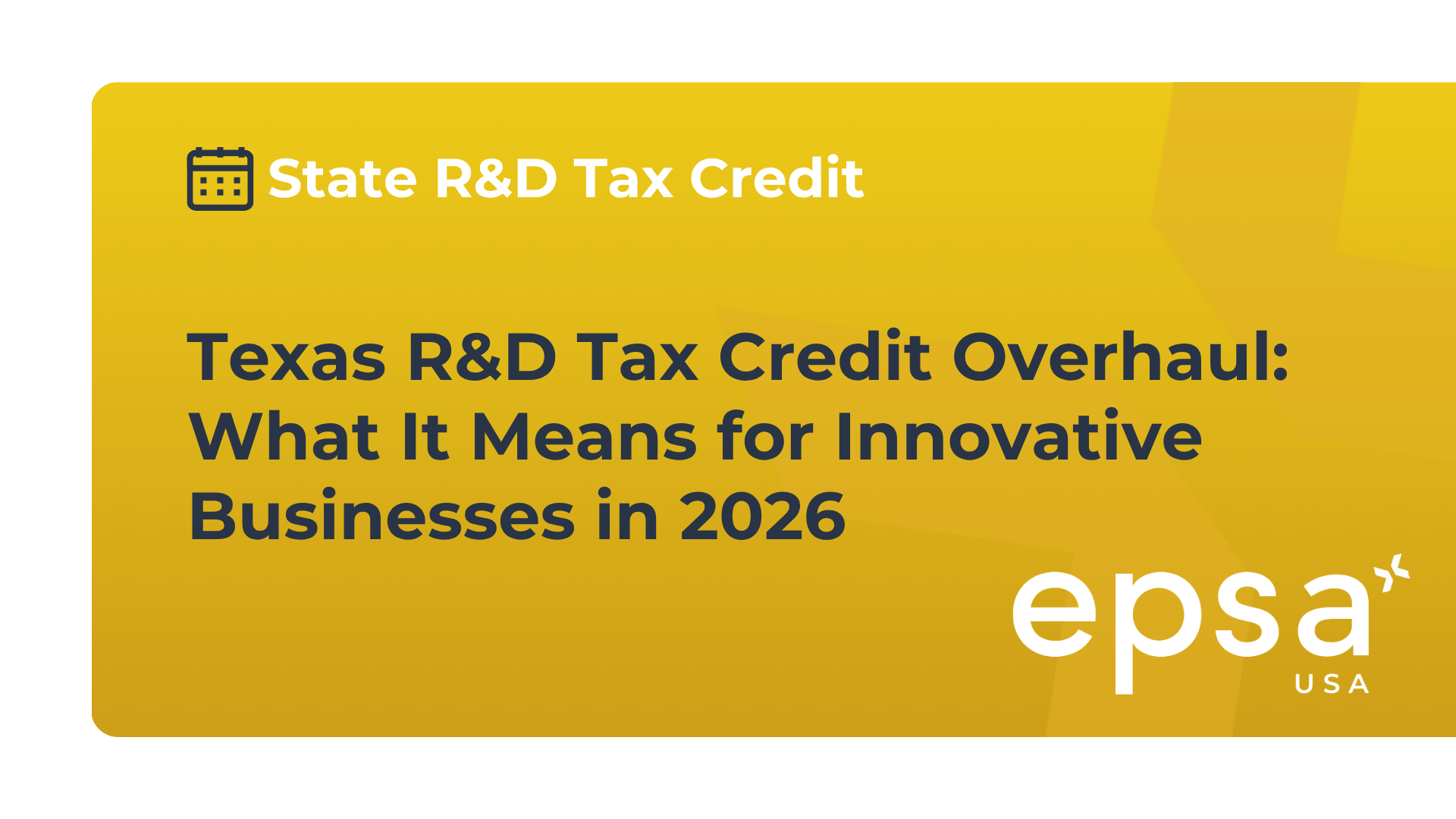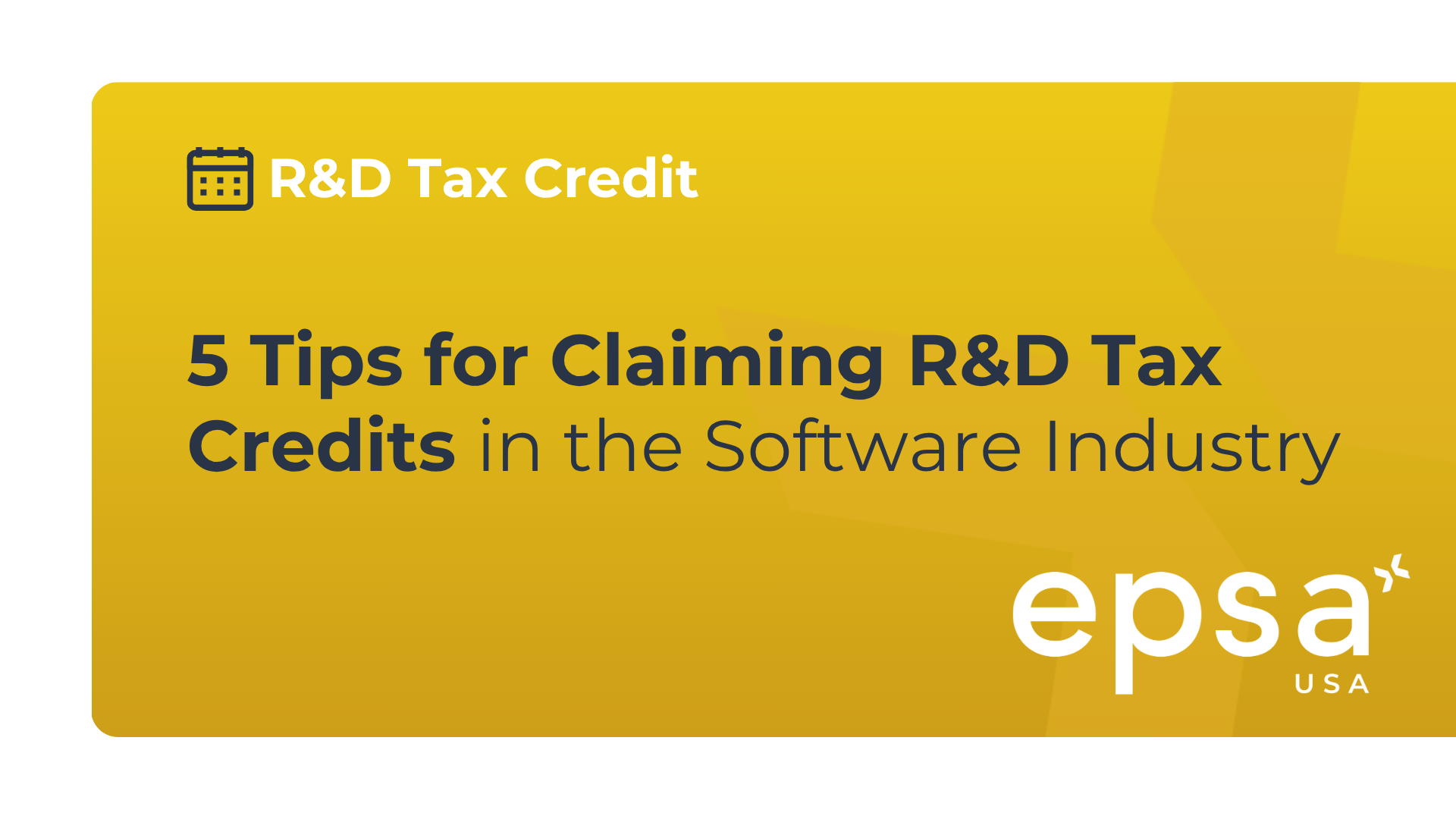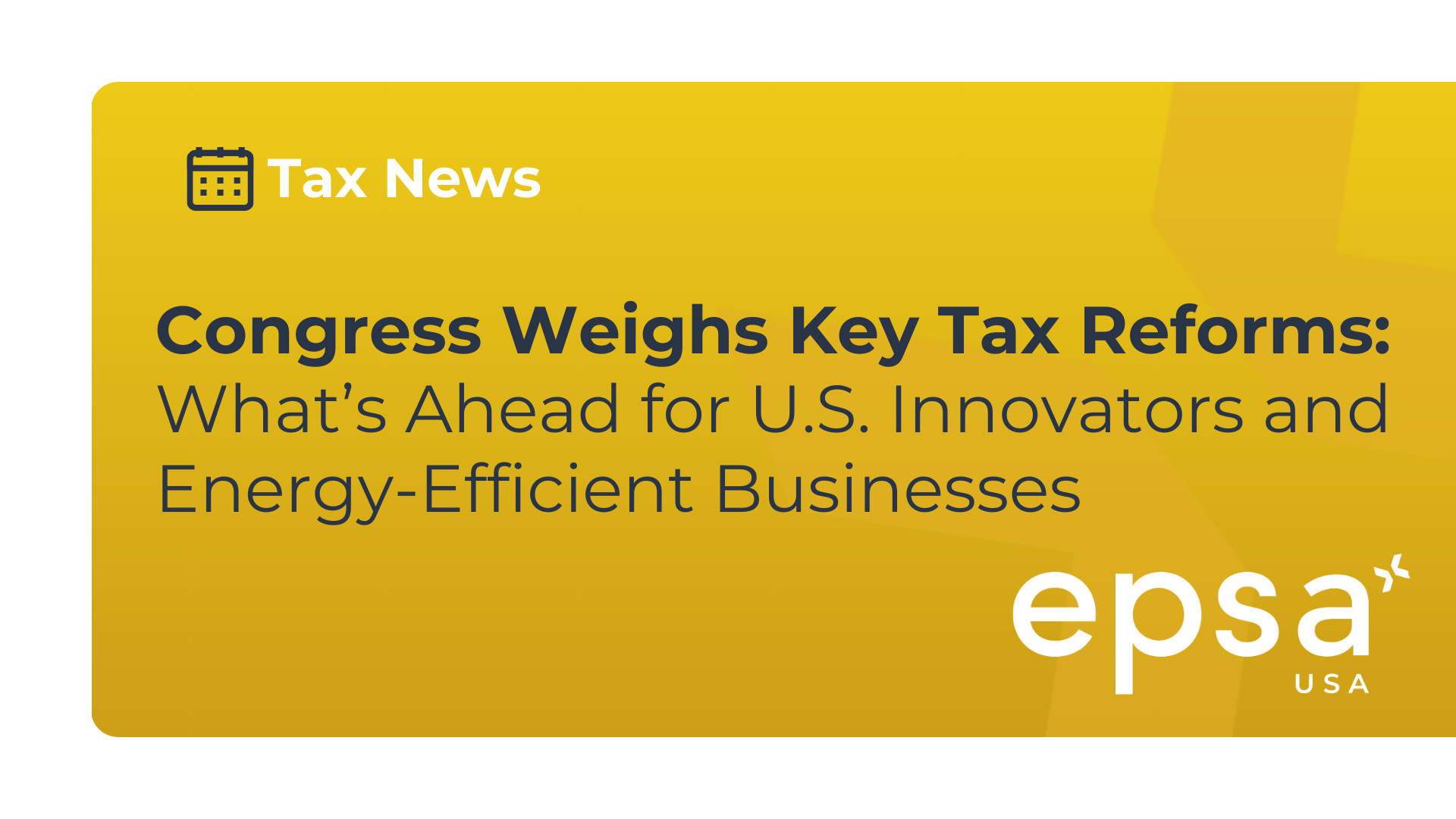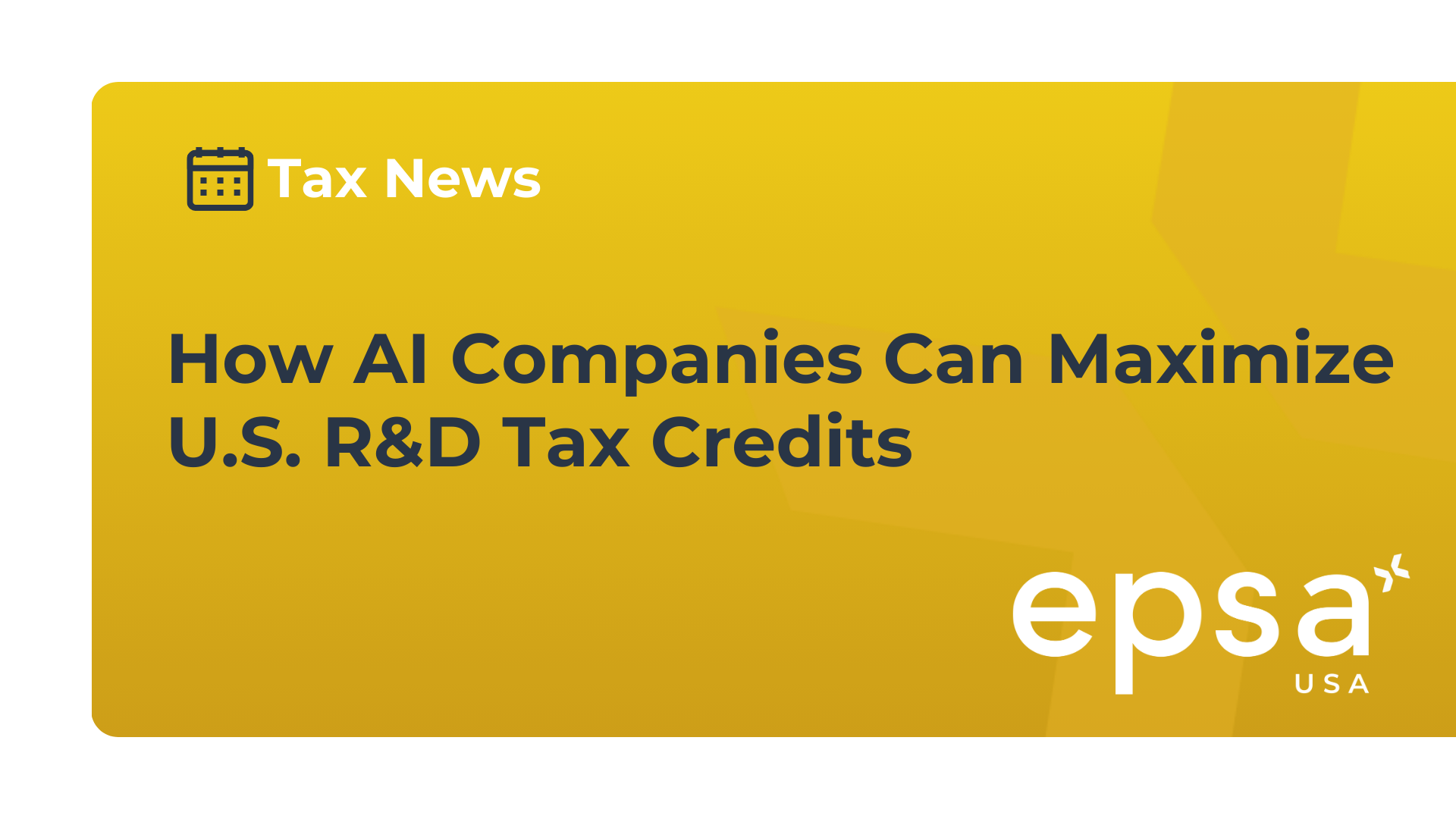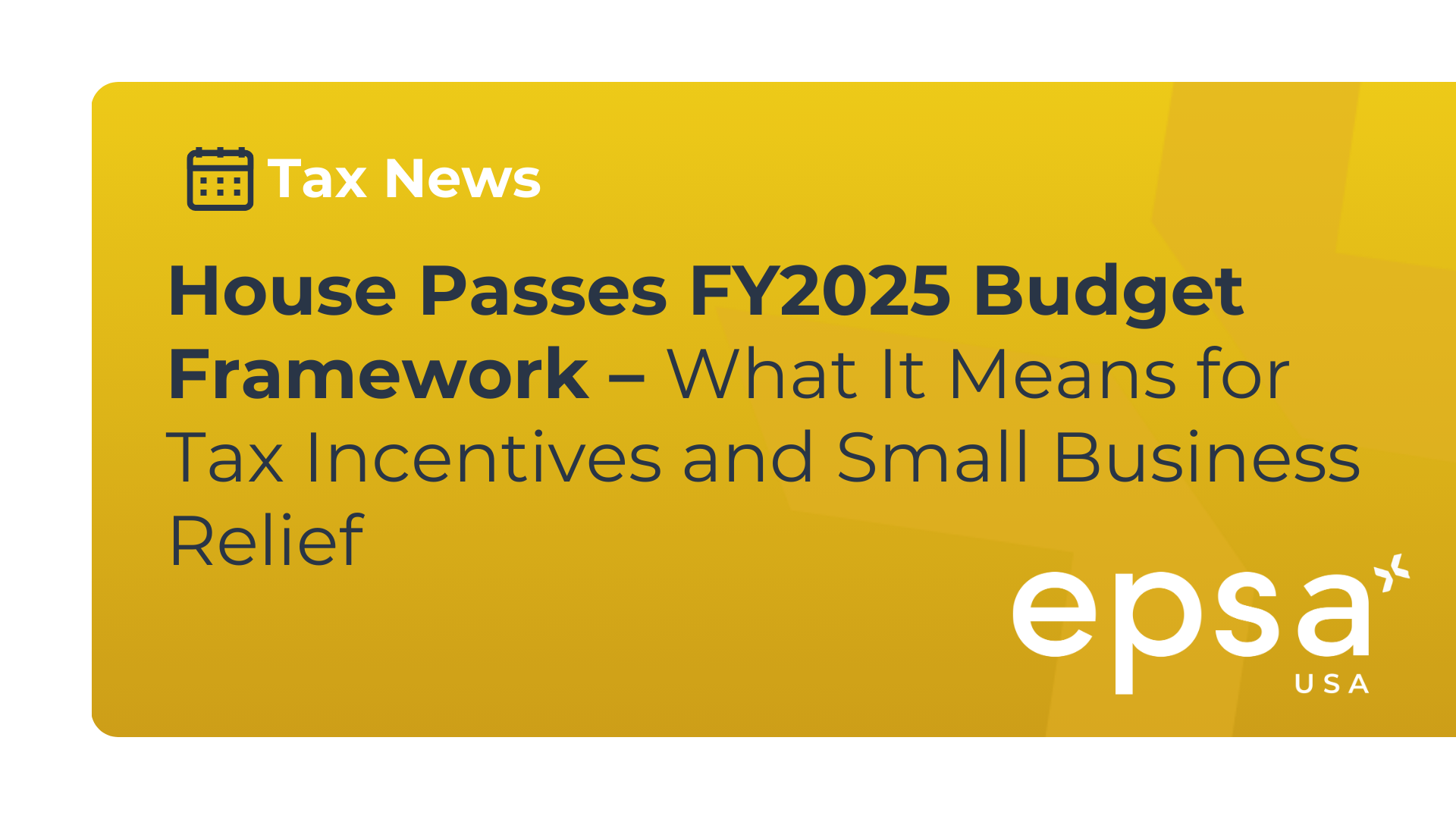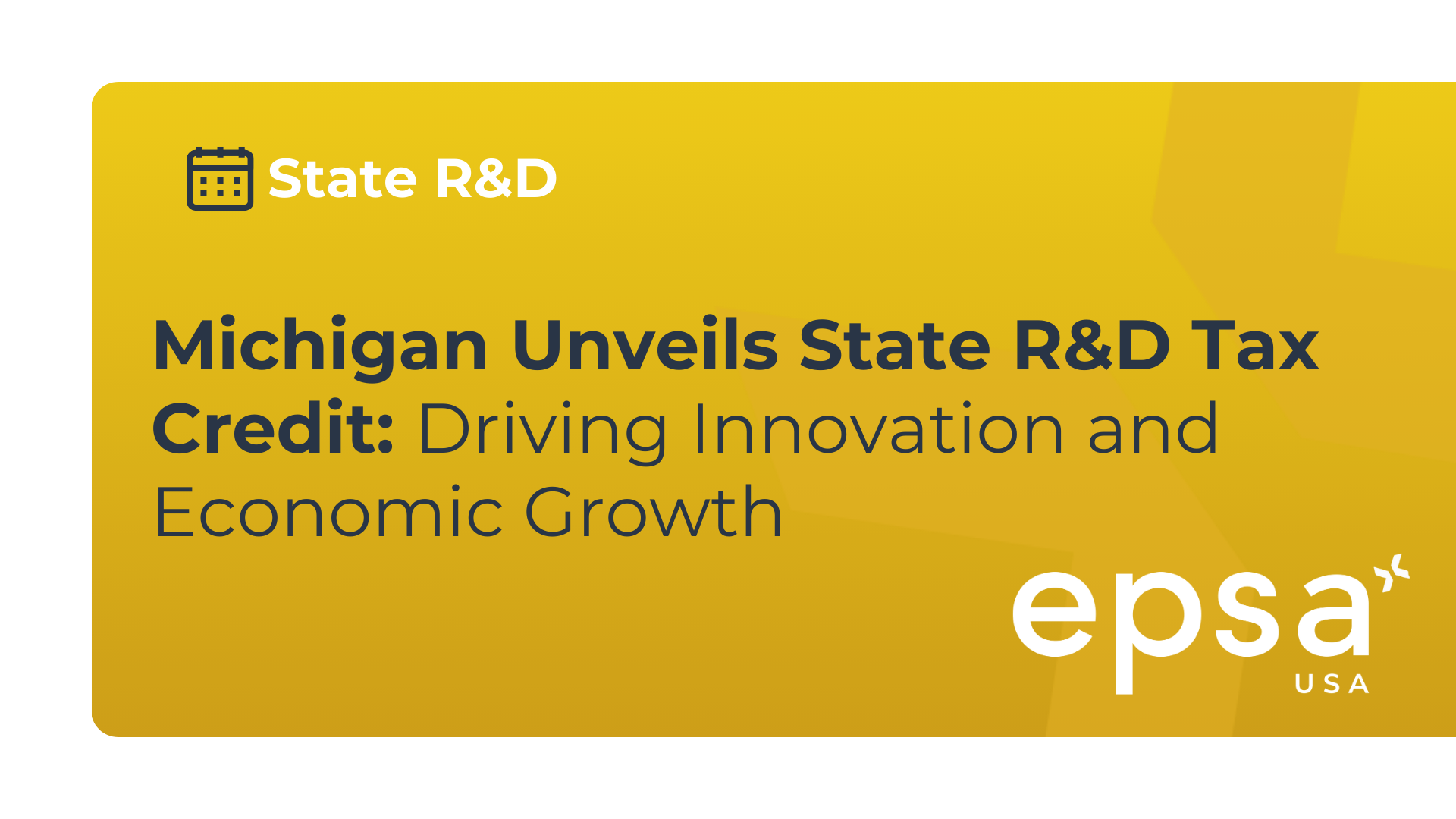Our news
Discover the latest news from EPSA USA, where we share the trends, innovations and strategic insights that are shaping the American economic and operational landscape. Follow our analysis and news to stay informed about the solutions that are making a difference in an ever-changing market.
Types
Categories
-
 01/07/2025
01/07/2025The Next Step for R&D Expensing: What Saturday’s Senate Vote Means for Your Business
-
 20/06/2025
20/06/2025Navigating the 2025 Tax Landscape: Key Proposed Changes to R&D, Section 174, and Section 179D
-
 17/06/2025
17/06/2025179D: A Guide- Unlocking the §179D Deduction for Architects, Engineers, and Design-Build Firms
-
 17/06/2025
17/06/2025Texas R&D Tax Credit Overhaul: What It Means for Innovative Businesses in 2026
-
 14/05/2025
14/05/20255 Tips for Claiming R&D Tax Credits in the Software Industry
-
 09/05/2025
09/05/2025Congress Weighs Key Tax Reforms: What’s Ahead for U.S. Innovators and Energy-Efficient Businesses
-
 22/04/2025
22/04/2025How AI Companies Can Maximize U.S. R&D Tax Credits
-
 22/04/2025
22/04/2025Unlocking R&D Tax Credits for FinTech Innovation
-
 22/04/2025
22/04/2025System Integrators: Unlock Your Innovation with the R&D Tax Credit
Most popular news
-
 28/10/2024
28/10/2024IRS Announces §179D Inflation-Adjusted Deduction for 2025: Key Takeaways for Your Projects
-
 08/02/2022
08/02/2022Already Claiming the R&D Credit? Here are 3 Things you Could be Missing!
-
 11/04/2025
11/04/2025House Passes FY2025 Budget Framework – What It Means for Tax Incentives and Small Business Relief
-
 28/11/2024
28/11/2024Michigan Unveils State R&D Tax Credit: Driving Innovation and Economic Growth
